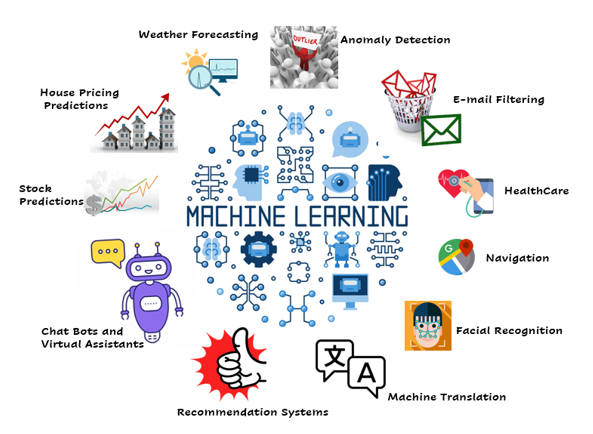Machine Learning Tutorial
Home Data Science Data Science Tutorials Machine Learning Tutorial
Basic
Algorithms
Supervised
Classification
Deep Learning
RPA
Interview Questions
Machine Learning Tutorial
Machine Learning coined by Arthur Samuel in the 1950s is a subset of Artificial Intelligence that deals with algorithms, statistic models and analytics. Traditionally, machines were designed to follow certain instructions given to them and did not possess the ability to make decisions. Machine Learning changes this by being able to analyze, predict or classify various data to reach the optimal solution. Machine Learning enables a system to make statistically significant decisions based on the data collected during past interactions. Machine Learning makes way for a possibility wherein a system can gain intelligence over time.
Why do we need Machine Learning?
In the digital age, Data is something that is abundantly available. The conventional way of programming is not the best solution to a problem involving pattern recognition or retaining a chunk of memory from a previous interaction. It gets complex and messy when trying to update for new requirements. Moreover, the traditional programming approach fails to handle a huge variety of data whereas, with Machine Learning, the more is always, the merrier. With the massive volume of data we generate, state-of-the-art Neural Nets models for easy pattern recognition are now possible.
Let’s have an example of some of the most common things we do almost every other day, like ordering food, groceries, or even clothes. All these now just a click away are powered by Machine Learning, which can find patterns and behaviors and learn from them without being explicitly programmed.
Applications of Machine Learning
The advent of ML technology has revolutionized our lives. They are so much blended into our daily routines that we mostly depend on them to accomplish our tasks. The smartphones that most of us cannot imagine our life without are majorly driven by Machine Learning. Right from unlocking the phone to using the various Social Media and e-Commerce apps installed, run on complex neural nets that are rigorously trained to give us a seamless usage.
In the ever-progressing world, Machine Learning is being recognized by several sectors for their betterment and to stand out amongst their competitors. Sectors such as Finance, Retail, Healthcare, Transport to name a few uses Machine Learning to reach out to more people and to create a personalized bond with them by taking into account their likes and dislikes.
Top Companies such as IBM, Google, Microsoft, Intel, Apple, Tesla, Facebook, Netflix, Instagram use Machine Learning effectively for reliable, fast and effective business decision making.
Img: Various Applications of Machine Learning
Prerequisites for Machine Learning
The cool things that can be achieved with Machine Learning are what attracts everyone to this field. But what one fails to notice is that a lot goes into the background that makes an application driven by ML successful. Machine Learning is about how well you can communicate with the machine to get the work done.
Fluency in either Scripting Languages, i.e., Python or R, is essential. Contrary to popular belief, one does not need to be an established mathematician or statistician to start with Machine Learning. However, working knowledge on the basics is a must, the pre-defined libraries in programming Languages like Python and R can take care of the job pretty well. In addition, it is also necessary to take the rust off from one’s analytical skills since 80% of the time in building a successful ML model goes to analysis and selection of the right kind of data.
Target Audience
Machine Learning Tutorials are mainly targeted to grad students and working professionals like Analysts, Data Scientists or Developers who are assumed to have some prior knowledge on the fundamentals of Computer Science. However, the audience need not be limited to only this set of people. Anyone with basic analytical and programming skills and the right attitude and determination can ace Machine Learning.
Let’s Get Started
By signing up, you agree to our Terms of Use and Privacy Policy.
Let’s Get Started
By signing up, you agree to our Terms of Use and Privacy Policy.


Watch our Demo Courses and Videos
Valuation, Hadoop, Excel, Web Development & many more.


EDUCBA Login
This website or its third-party tools use cookies, which are necessary to its functioning and required to achieve the purposes illustrated in the cookie policy. By closing this banner, scrolling this page, clicking a link or continuing to browse otherwise, you agree to our Privacy Policy

